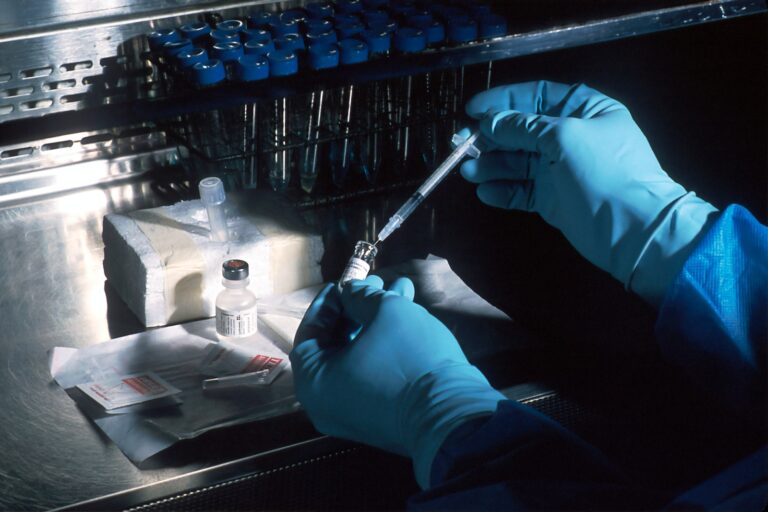Chlamydia can be cured with a simple course of antibiotics. It’s important to practice safe sex and get tested for STIs regularly.
Chlamydia can cause serious health problems if left untreated. It can lead to infertility, ectopic pregnancy and epididymitis. It can also increase your risk of getting HIV. It’s important to tell your sexual partners so they can get tested and treated.
1. Use a condom
Chlamydia is very easy to treat with antibiotics, but it’s important that you and your sexual partner(s) take precautions to prevent reinfection. You should avoid sex until 7 days after finishing your medicine and only have vaginal, anal or oral sex with a condom to ensure you’re not re-infected. It’s also a good idea to have your partner get tested and treated for chlamydia and make sure they don’t have any active infection, since some strains of chlamydia are resistant to certain antibiotics.
A condom provides up to 98% protection against STIs, including chlamydia. Always use a male latex or female polyurethane condom during each sexual encounter, and remember to use lube too. Also, limit the number of sex partners you have and do not share personal items like toothbrushes or towels with other people. Douching decreases the number of healthy bacteria in your vagina and can increase your risk for chlamydia infection.
Chlamydia trachomatis can also infect the eyes (conjunctivitis) or throat (trachoma). A person with chlamydia eye infection will have a red irritated eye, and those with chlamydia throat infections will experience a sore throat. Chlamydia can infect the penis and rectum as well, causing painful urination or a discharge from the penis or rectum. If you notice a discharge from your penis or rectum, visit your doctor immediately for treatment.
2. Wash your hands
Chlamydia is spread through vaginal, anal or oral sex without a condom. It can also be spread by having sex with someone who is already infected, or by a woman giving the bacteria to her baby during childbirth.
Chlamydia infection can cause serious health problems if not treated quickly. Women with untreated chlamydia can develop permanent damage to their reproductive organs, making it harder or impossible for them to get pregnant later on. Men who have chlamydia may develop an infection in their epididymis or prostate gland, which can lead to pain during intercourse and ejaculation, or they could have a pelvic inflammatory disease (PID) that can cause painful urination, blood in the urine and low back pain.
If you have chlamydia, your doctor will prescribe antibiotics to treat the infection. The most common antibiotics used to treat chlamydia are azithromycin (taken in a single dose) and doxycycline (taken twice a day for 7 days). Follow your doctor’s instructions for taking the medicine. You should not have sex until you finish your treatment and your doctor says it’s safe, even if you don’t have any symptoms of chlamydia. Also, tell your sexual partners to take the medication as well if they haven’t been treated. They should also be tested 3 months after their treatment to make sure they are clear of chlamydia.
3. Don’t touch your vaginal area
Chlamydia can spread during vaginal, anal or oral sex. It can also be passed on by sharing sex toys, even if they have been thoroughly washed. This is why it’s important to use a condom whenever you have any type of sexual contact. It’s also why it’s important to discuss STI prevention with your partners and to get tested regularly.
Most people who get chlamydia have no symptoms at all, so it’s possible for someone to be infected with the bacteria without knowing it. This increases the risk that they will pass it on to their partners. If a woman has untreated chlamydia, the infection can spread to her fallopian tubes and cause pelvic inflammatory disease (PID). PID is a medical emergency and needs immediate treatment.
It’s also possible for men to get complications from untreated chlamydia. For example, the bacteria can spread to the epididymis, causing pain during sex and a thick, mucus-like discharge. The infection can also spread to the prostate gland, causing a painful intercourse and a fever.
If you’re diagnosed with chlamydia, your doctor will ask you to communicate this news to your sexual partners. In some states, your doctor can prescribe antibiotics for your partners without them having to visit the clinic in person, a practice known as expedited partner therapy. There are also nurses called partner notification officers who can help you notify your partners anonymously.
You can still get chlamydia after treatment, even if you don’t have any symptoms. To avoid this, you should take your antibiotics exactly as your doctor prescribes them, and abstain from sex until your infection clears up. It’s also important to use condoms with your sexual partners until you are sure that the chlamydia is gone. Many medical teams recommend waiting a week after treatment to ensure that you are completely free of the infection.
It’s worth noting that you can also catch chlamydia from oral sex, although this is less common. It’s unfortunate that the emphasis in STI testing is often placed on penetration, but it is important to be open with sexual health clinics and tell them about any unprotected oral sex you’ve had. This allows them to swab your mouth for chlamydia and other infections.
Some people reacquire chlamydia after completing treatment, and this is usually because their partner did not receive treatment. It is estimated that between 20% and 40% of women with chlamydia re-infection within months of completing treatment. You can prevent reinfection by abstaining from sex until your chlamydia has cleared up and always using barrier methods, washing hands well, and never sharing sex toys. You can also increase your immunity by getting screened regularly for STIs, including chlamydia and other sexually transmitted diseases like HIV/AIDS, herpes, and gonorrhea.
See Also:



